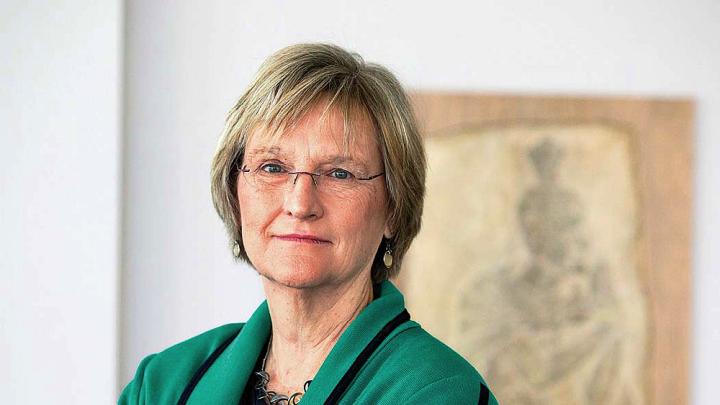The United States of America is an idea—and an ideal. Each of us has a role to play in realizing its promise in our individual lives and in the communities that we inhabit and influence. When I became president in 2007, I didn’t anticipate just how often—and how urgently—I would be called upon to make Harvard’s case, and the case for American higher education, to Administration officials, members of Congress, journalists, and others in Washington, D.C., but it is a role I have come to embrace.
Over the last decade, I have made dozens of trips to our nation’s capital, most frequently in the last two years, as attacks on higher education have increased. I meet regularly with members of Congress and others to discuss the enduring value of the partnership between American universities and the federal government in basic and applied research, to urge support for Pell Grants and other forms of financial aid that help make college affordable, and to advocate for the rights of DREAMers to be part of campuses and part of our country.
Colleges and universities strengthen these United States. Through public investment in basic research and the application of new knowledge, American health and wellbeing are improved, human minds and imaginations are expanded, and extraordinary advancements and innovations in business, security, technology, and other sectors are sparked. In this publication and elsewhere, I have described the many ways in which federal funding is driving our efforts to improve life and to deepen understanding, and creating the possibility of a future free of disease and illness—a future in which aging itself is slowed. We ought never lose sight of these aims because they give us hope and inspire the types of effort that change the world by incremental steps and enormous leaps. Without investment, there can be no dividends.
The federal government also plays an essential role in Harvard’s efforts to attract some of the world’s most talented individuals to study and work on our campus. Today, international students comprise nearly a quarter of our community, and we host more international scholars than any other college or university in the country. Our cosmopolitan campus—and all of the global connections and collaborations that it enables—depends on a visa system that does not create undue delay or hardships, as well as an effective and thoughtful approach to security at our ports of entry. Making it more difficult for highly capable women and men to contribute to our innovation ecosystem as students and faculty erodes economic competitiveness at a time when other nations are working to make their campuses appealing to the people who will make discoveries and drive progress—and prosperity—for decades to come.
These aspects of Harvard cannot easily be assessed and measured, and part of my work on the Hill is ensuring that statistics about economic growth and talent development enabled by the University are shared broadly and frequently. But what about the less tangible outcomes—the propagation of ideals and values that are the heart of our enterprise and the soul of this country? There are, perhaps, no better stories to illustrate the promise of American institutions than the stories of undocumented students who call this country and our campus home. They embody the very qualities that emboldened our nation’s founders—confidence, drive, and optimism—and they are unquestionably qualified to make significant contributions among their generation’s thinkers and doers. It has been my honor to represent their interests as they anxiously await action in Washington.
On innovation and immigration and many other issues, I have found strong allies among Democrats and Republicans alike, and I leave Washington after each visit impressed and heartened by alumni who are devoting themselves to public service in the Senate, the House, the Judiciary, and throughout all levels of our government—from Congresswoman Katherine Clark, Congressman Joaquin Castro, and Senator Chuck Schumer to Secretary Elaine Chao, Senator Dan Sullivan, and Congressman Scott Taylor. These individuals continue a long and proud tradition that has stood our country in good stead since its earliest days, and they bring to their deliberations a level of civility, decency, and intelligence that reflects well on their alma mater and their offices. I am proud and appreciative for all that they do to continue the work of perfecting an imperfect union.







